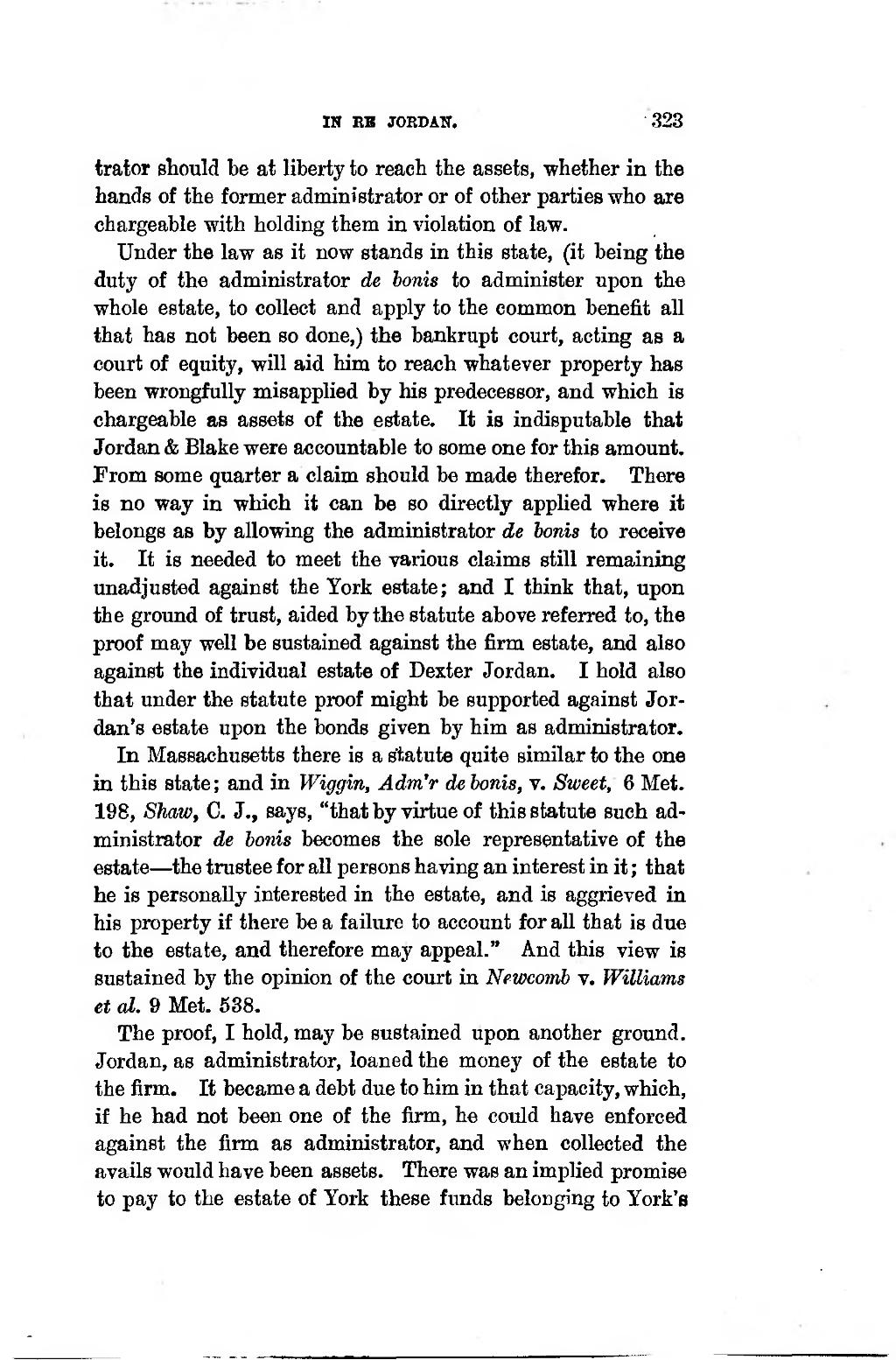IN EB JORDAK. 323 �trator sîiould be at liberty to reaeh the assets, ■whether in the hands of the former administrator or of other parties who are chargeable with holding them in violation of law. �Under the law as it now stands in this state, (it being the duty of the administrator de bonis to administer upon the ■whole estate, to collect and apply to the common benefit ail that has not been so done,) the bankrupt court, acting as a court of equity, will aid him to reach whatever property has been wrongfuUy misapplied by his predecessor, and which is chargeable as assets of the estate. It is indisputable that Jordan & Blake were accountable to some one for this amount. From some quarter a claim should be made therefor. There is no way in which it can be so directly applied where it belongs as by allowing the administrator de honis to reçoive it. It is needed to meet the varions claims still remaining unadjusted against the York estate; and I think that, upon the ground of trust, aided by the statute above ref erred to, the proof may well be sustained against the firm estate, and also against the individual estate of Dexter Jordan. I hold also that under the statute proof might be supported against Jor- dan's estate upon the bonds given by him as administrator. �In Massachusetts there is a statute quite similar to the one in this state; and in Wiggin, Adm'r de bonis, v. Sweet, 6 Met. 198, Shaw, G. J., says, "that by virtue of this statute sueh ad- ministrator de bonis becomes the sole representative of the estate — the trustee for ail persons having an interest in it ; that he is personally interested in the estate, and is aggrieved in his property if there be a f ailure to aocount for ail that is due to the estate, and therefore may appeal." And this view is sustained by the opinion of the court in Newcomb v. Williams et al. 9 Met. 638. �The proof, I hold, may be sustained upon another ground. Jordan, as administrator, loaned the money of the estate to the firm. It became a debt due to him in that capacity, which, if he had not been one of the firm, he could have enforced against the firm as administrator, and when coUeeted the avails would have been assets. There was an implied promise to pay to the estate of York these funds belonging to York'a ����
